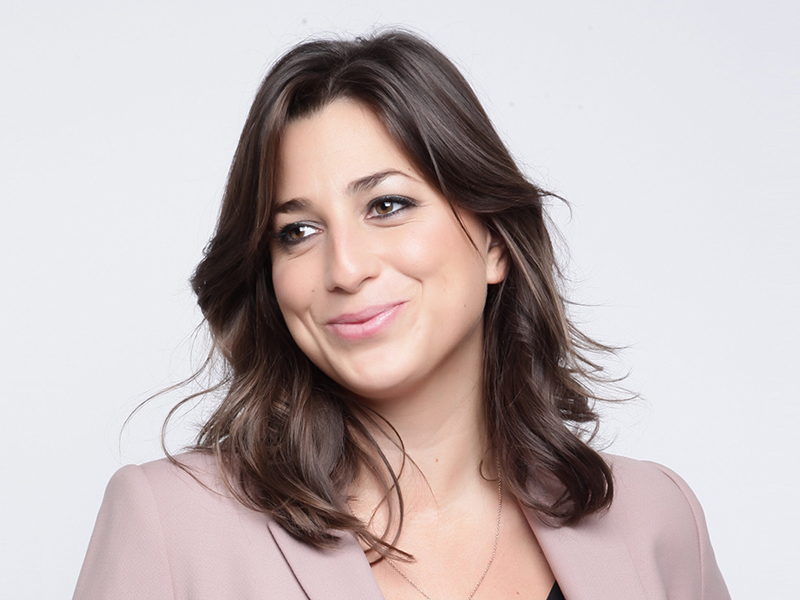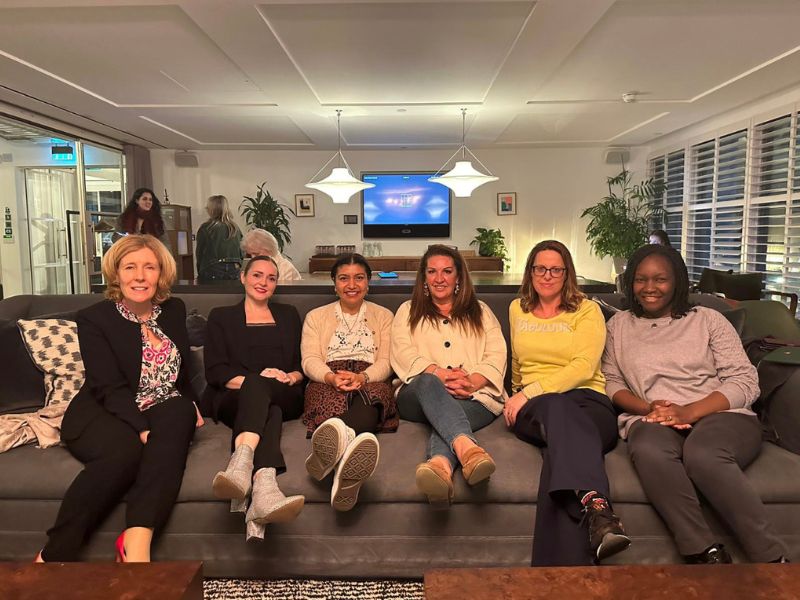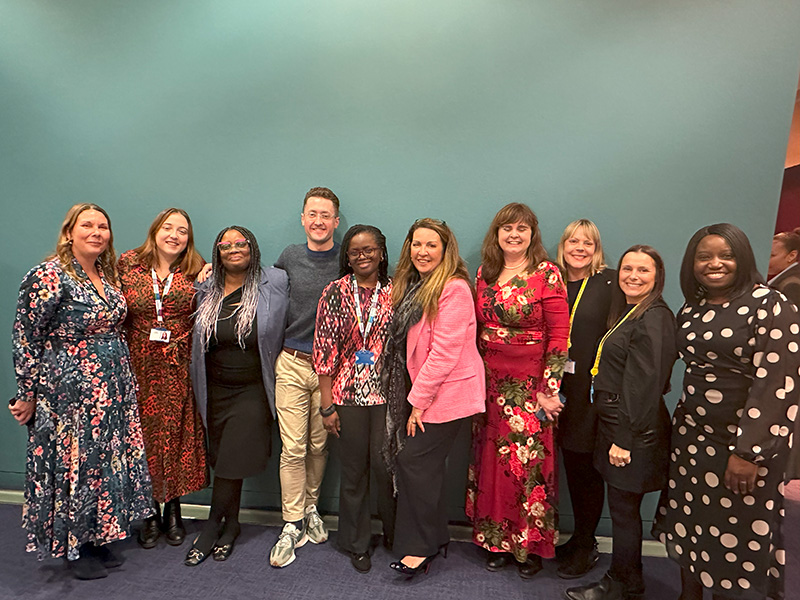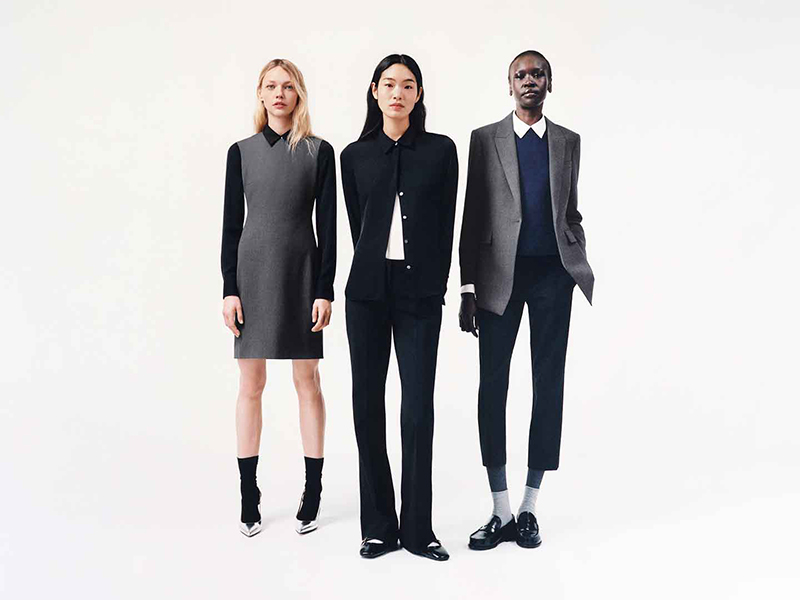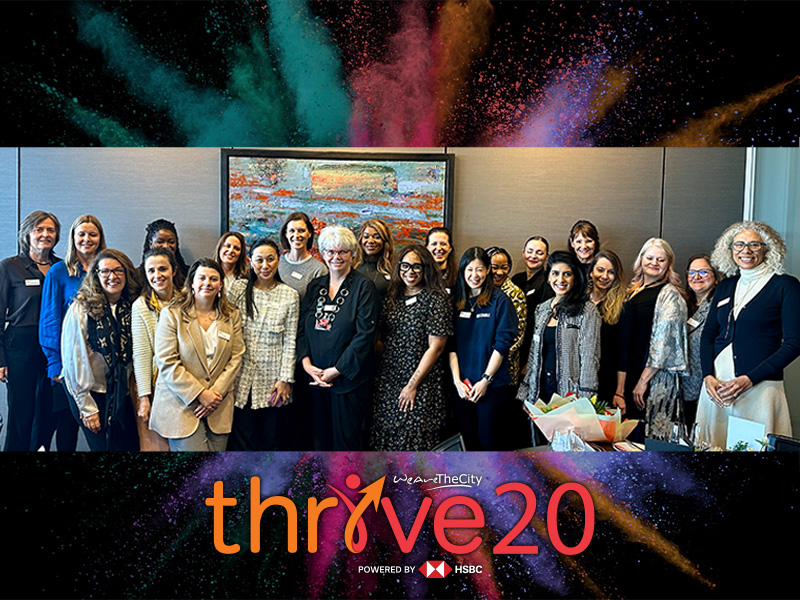In 2023, WeAreTheCity collaborated with HSBC to reveal the honourees of our Thrive20 roster. This prestigious list celebrated twenty remarkable female entrepreneurs spearheading purpose-driven businesses across the UK.
These entrepreneurs, acknowledged for their outstanding contributions, showcased the possibility of achieving excellence in their respective fields while effecting meaningful change in the world. Discover the inspiring stories of our Thrive winners here.
In a bid to motivate others to follow the remarkable paths forged by these role models, we are thrilled to present an exclusive interview with Anna Brailsford, the CEO of Code First Girls and one of the triumphant winners. Join us as we delve into Anna’s insights on entrepreneurship and her strategies for steering her own business as CEO.
Can you tell us about your journey as a purpose-driven entrepreneur? What inspired you to start your business?
I started my journey in family-run businesses and have always gravitated towards entrepreneurial roles. Over the years, I co-founded my own EdTech startup Frisbee and prior to that was the Commercial Director of Lynda.com, which was bought by LinkedIn for $1.5bn – the fourth largest acquisition in social media history.
When I first came to Code First Girls it was more of a campaign than a business, with a mission focused on education rather than employment.
By listening to industry and recruitment teams across numerous sectors, we discovered that there was a desperate need to build a pipeline of women in tech roles. We soon realised that the best way to do that was through providing free, virtual and accessible education. This structure helps women fit their studies flexibly around their lives and removes barriers for those in full-time education, work, or caring responsibilities. And so, Code First Girls – in its current form – was born.
What is the mission and core purpose of your business, and how does it drive your daily work and decision-making?
At its core, Code First Girls is a fast-growing business that is making a real social impact. Our mission is to encourage and teach more women to code, provide direct access to employment, and ensure tech companies can access the top diverse talent they need to flourish. We work closely with more than 130 businesses including Nike, Rolls-Royce, NatWest, Barclays, GCHQ and Skyscanner to get more women into an industry that is facing a major skills gap and desperately needs more diversity in the workforce.
Seeing how Code First Girls’ changes so many women’s lives motivates and drives my daily work, with my decision-making focused on what’s best for women and the industry. The impact that diversity has, both culturally and financially, on the organisations that we work with drives both myself and the wider team to find the best talent for companies across all sectors and sizes.
How do you ensure that your business aligns with your personal values and the causes you’re passionate about?
As a former career switcher myself (going from Law to EdTech), I wanted to create a business that helps other women be empowered to make a career change at any stage of life. With a background in EdTech, education has always been at the centre of my work, and I wanted to combine this passion with my drive to help women succeed in their careers.
Can you share some specific examples of how your business has made a positive impact on your chosen cause or community?
Through our partnerships, we are helping women and non-binaries break into the industry by linking amazing talent with businesses across the UK and globally.
We are better for employers and candidates. We match candidates throughout the educational process using data and insights to ensure the best fit between employers and our community and build regional talent pools, helping to build local communities and economies.
For example, we recently partnered with Hubspot, a leading marketing platform, to teach university students in Dublin in-demand tech skills. Despite Ireland being home to 16 of the 20 largest global tech companies, in 2022, only 12,000 people graduated in high-level ICT skills areas. Through our partnership, we were able to unlock new talent pools to fill the talent gap, with 63% of women coming from a non-computer science background and 58% from underrepresented groups.
What challenges have you faced in balancing profitability with purpose in your business, and how have you overcome them?
At its heart, as Richard Branson famously said, “doing good is good for business!” Profitability and purpose are not mutually exclusive terms.
In our case, encouraging businesses to build diverse teams is so important to our mission, but thanks to research being done by the likes of McKinsey, diverse teams are proven to perform better (+35%), innovate better (1.7x), and drive diversity of thought – giving companies a competitive advantage that enjoys, on average, 2.3x higher cash flow.
Additionally, placing women into tech roles means we can deliver more economic opportunities to minority groups, offering higher levels of social mobility than other high-earning professions such as medicine and law. Therefore, the more companies we partner with, the more women we can help, and the closer we get to our mission of gender equality in a male-dominated industry.
Many purpose-led businesses face scepticism regarding the sincerity of their commitment to social or environmental causes. How do you address this scepticism and demonstrate authenticity?
Our mission is clear – we’re encouraging more women to code and ensuring top tech companies can access the top diverse talent they need to flourish – and we’ve never strayed from that.
We place our community at the centre of everything we do – listening to their concerns and experiences to better inform our next steps and conversations with businesses. As such, we are able to remain authentic in our mission, and continue our work in diversifying the tech sector.
The amount of case studies we have from community members and employers sharing how Code First Girls changed their lives and businesses speaks for itself.
Can you share a story or project that you’re particularly proud of that showcases the positive change your business has brought about?
We recently launched a new product – the Mid-Level Accelerator (MLA) – which aims to help women drive their tech careers forward in mid to senior-level roles. Currently, women make up just 5% of leadership positions in the industry, with 81% of our career-switching community reporting that they would have stayed in their roles if given the opportunity to upskill.
Whilst we have been leading the way in getting more women into entry-level tech roles, the MLA is a great next step for us in ensuring that the tech industry not only employs – but retains – diverse talent.
How do you stay motivated and maintain your passion for both your business and the causes you support, especially during challenging times?
Our many success stories are what keep me going, even during more challenging times in the business. Knowing that we’ve been able to help women who have previously been discouraged from the tech industry kick-start their careers in a sector that offers greater economic opportunity, is what keeps me and the team motivated.
What advice do you have for aspiring female entrepreneurs who want to create a business with a strong social or environmental purpose?
Authenticity is super important. You have to believe in what you’re working towards if you’re going to be successful – without that, you’re setting yourself up for failure.
Secondly, there’s a big difference between talking and acting. It’s no longer acceptable to just pay lip service – you need to be doing the work to support that. When any organisation gets involved with Code First Girls I make it clear – you’re getting involved and actually making a difference, not just making yourself look good. Shifting the dial requires companies to be fully invested in every sense of the word.
How do you envision the future of your purpose-led business, and what impact do you hope to achieve in the coming years?
Of course, the ultimate goal would be to achieve 50/50 gender parity in the tech sector – but we know that this is a longer-term mission that is not going to be achieved in the next decade. However, we’re aiming to provide one million opportunities for women to learn how to code and participate in the sector in the next five years, delivering £1 billion in economic opportunities.
We also hope to expand our impact, as we are already doing so, to other key tech hubs across Europe and the US – taking our influence global.
Whilst we know that diversifying the industry comes with many barriers, we’re ready to take on the challenge and improve the UK tech sector for good.

